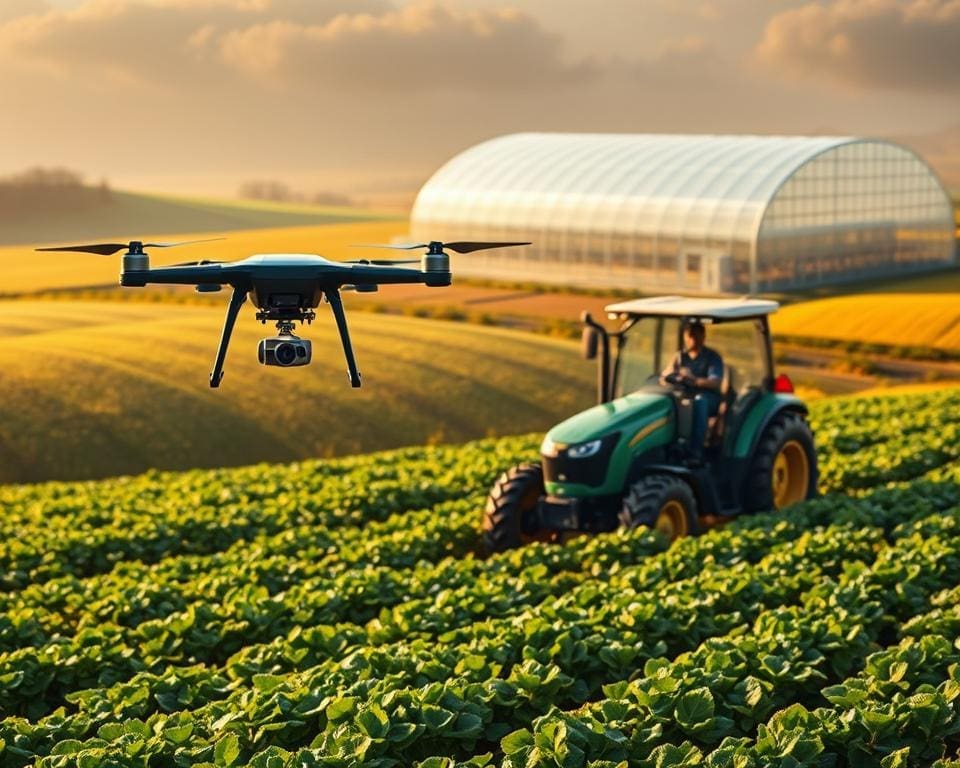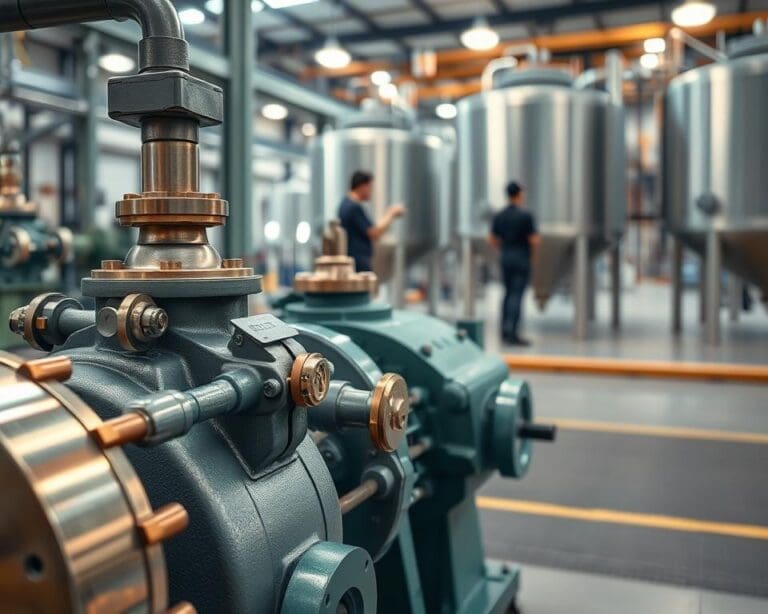Agri-tech, or agricultural technology, signifies a groundbreaking method aimed at enhancing the productivity and efficiency of farming practices. This dynamic field integrates advancements in technology, biotechnology, and engineering to revolutionise the growth, harvesting, and distribution of agricultural products. What Is Agri Tech encompasses key areas such as precision farming, smart farming techniques, and digital agriculture, all designed to create a more sustainable agricultural framework. As the industry faces pressing challenges such as climate change, population growth, and resource limitations, the emergence of farming innovation is crucial for ensuring food security in the United Kingdom.
Understanding Agricultural Technology
The world of agricultural technology plays a pivotal role in reshaping modern farming. A clear understanding of this concept is essential for anyone involved in the agricultural sector. It encompasses the tools and techniques that significantly enhance the efficiency of crop production and livestock management. The definition of agricultural technology extends beyond mere equipment; it signifies the innovative processes that drive productivity while addressing sustainability challenges.
Definition and Importance
At its core, agricultural technology refers to advancements that help farmers increase yield and improve the quality of produce. The importance of this field cannot be overstated. It directly influences food security, economic stability, and environmental sustainability. As global populations rise, the agricultural sector must adapt through innovation. Employing agricultural technology allows for better resource management and reduced waste, which is crucial for sustainable development.
Evolution of Agricultural Practices
The evolution of farming techniques has witnessed a remarkable transformation from traditional practices to contemporary approaches. Historically, farming relied heavily on manual labour and rudimentary tools. Over the years, with the advent of mechanisation, farmers have adopted sophisticated methods, integrating data analytics and biotechnology into their operations. This change marks a significant step forward, enabling the adoption of smart farming techniques tailored to meet modern demands.

What Is Agri Tech
Agri-tech represents a transformative approach to agriculture, incorporating innovative technologies that redefine traditional practices. Understanding what is agri tech involves exploring its key components, which include elements that enhance productivity and sustainability in farming.
Key Components of Agri Tech
The key components of agri tech comprise several cutting-edge technologies. These include:
- Artificial intelligence that helps in predicting crop behaviour.
- The Internet of Things (IoT), connecting devices for real-time monitoring.
- Drones for aerial survey and precision agriculture.
- Mobile applications that allow farmers to access data and tools at their fingertips.
These components work together to offer farmers an integrated solution, ensuring they make well-informed decisions based on real-time insights.
Impact on Modern Farming
The impact of agri-tech on modern farming is profound. Enhanced crop yields have become a reality, attributed to precise data analysis and tailored farming strategies. Farmers can optimise resources, significantly reducing labour costs and input waste. The sustainability practices fostered by agri-tech guide the industry towards a greener future. In the UK, these advancements not only improve efficiency but also contribute to responsible resource management, paving the way for future generations.
Innovations Driving Farming Forward
As agriculture faces mounting challenges, innovation serves as a beacon of hope. The integration of smart farming techniques transforms traditional practices, making them more efficient and sustainable. These techniques rely on advanced technologies to optimise resource use while enhancing crop yields.
Smart Farming Techniques
Smart farming utilises cutting-edge technologies such as automation and precision irrigation systems. These innovations allow farmers to monitor and manage their operations in real-time, minimising waste and maximising productivity. The adoption of smart farming not only increases efficiency but also contributes positively to environmental sustainability.
Digital Agriculture Solutions
Digital agriculture solutions include a variety of tools and software designed to improve farm management. Farm management software, precision sensors and data-driven analytics play vital roles in assessing crop health, ensuring optimal soil conditions, and forecasting yields. By harnessing data, farmers can make informed decisions, significantly enhancing overall operational effectiveness.
Examples of Farming Innovation
Notable instances of farming innovation underscore the potential of technology in agriculture. The use of drone technology for aerial imaging and soil analysis exemplifies how digital tools can address traditional farming challenges. By enabling detailed and comprehensive assessments, these advancements boost productivity and streamline farming practices.
Precision Farming: The Future of Agriculture
As farming continues to evolve, precision farming emerges as a pivotal approach, integrating advanced technologies to revolutionise the cultivation process. This technique involves the utilisation of systems like GPS, remote sensing, and variable rate technology, all of which play a crucial role in shaping the future of agriculture.
Technologies Used in Precision Farming
Precision farming relies on various cutting-edge technologies that enhance the ability of farmers to monitor and manage their resources efficiently. Key technologies include:
- GPS Technology: Allows for accurate tracking of equipment and field variability.
- Remote Sensing: Collects data on soil and crop health, providing insights for informed decision-making.
- Variable Rate Technology: Enables the customised application of inputs like fertiliser and water, tailored to specific areas of a field.
Benefits of Precision Techniques
The benefits associated with precision techniques are significant, promising a shift towards more sustainable and productive farming. These benefits include:
- Increased Yield: By applying resources precisely, farmers can optimise crop performance and maximise their harvest.
- Reduced Operational Costs: Efficient use of inputs leads to lower expenses, significantly impacting profitability.
- Enhanced Sustainability: Minimising waste contributes to lowering environmental impact, supporting a healthier ecosystem.
Precision farming stands at the forefront of the agricultural revolution, presenting numerous advantages that redefine traditional practices. Embracing these innovations will lead to a more productive and sustainable agricultural future in the United Kingdom.
Sustainable Agriculture Practices
Sustainable agriculture focuses on meeting the current demands for food without jeopardising the needs of future generations. The integration of agri-tech contributes significantly to this objective. By employing innovative technologies, sustainable agriculture reduces resource consumption and the overall carbon footprint associated with traditional farming methods.
Role of Agri Tech in Sustainability
Agri-tech solutions are at the forefront of promoting sustainability in the agricultural sector. These technologies enhance efficiency, enabling farmers to optimise yields while using fewer resources. Smart irrigation systems, for instance, allow precise water usage, reducing waste. Other technologies, like soil sensors, help monitor conditions and ensure that crops receive exactly what they need to thrive.
Examples of Sustainable Solutions
Several examples illustrate how agri-tech fosters sustainable agriculture:
- Vertical farming: This method maximises crop production in urban settings by utilising limited space efficiently.
- Hydroponics: Growing plants in nutrient-rich water diminishes the need for soil and conserves water, promoting efficient land use.
- Drone technology: Drones monitor crop health and assist in precise fertilisation, leading to less chemical runoff and improved environmental health.
Agri-Tech Trends Shaping the Industry
The landscape of agricultural technology is undergoing remarkable change, driven by an array of agri-tech trends. Current innovations highlight the importance of integrating advanced technologies within the farming sector. This evolution focuses on enhancing efficiency, sustainability, and overall productivity throughout the industry.
Current Innovations in Agri Tech
In the realm of agri-tech, innovations are catalysing significant advancements. Notable trends include:
- Artificial Intelligence: Increasing use in crop management to optimise yields.
- Robotics: Enhanced automated harvesting solutions are revolutionising traditional methods.
- Predictive Analytics: Utilising data to forecast crop performance and market trends.
- Blockchain Technology: Promoting transparency and accountability within the agricultural supply chain.
Predictions for the Future
Experts forecast an even deeper integration of technology into farming practices. Future predictions suggest a strong focus on:
- Improved resource management through precision farming techniques.
- Innovative solutions to tackle global food security issues.
- Expansion of Internet of Things (IoT) applications for real-time monitoring.
Implementing Agri-Tech Solutions
As the agricultural landscape rapidly evolves, implementing agri-tech solutions presents a pathway to enhanced productivity and sustainability. This process does not come without its challenges, which can impede progress. Addressing these obstacles is crucial for farmers eager to harness the full potential of modern technologies.
Challenges in Adoption
Various barriers stand in the way of widespread adoption of agri-tech. Farmers often face high initial investment costs, creating a significant hurdle. Additionally, a lack of technical skills among various demographics can slow down the effective use of innovative tools. Inadequate infrastructure, particularly in rural areas, may further complicate the implementation of these technologies. Overcoming these challenges requires concerted efforts from all stakeholders in the agricultural community.
Successful Case Studies
Amidst the challenges, inspiring case studies provide evidence of the effectiveness of agri-tech. One notable example is the use of precision agriculture techniques in the East of England, which has led to remarkable improvements in crop yields and resource efficiency. Such examples serve as blueprints for other farmers, showcasing the viability of implementing agri-tech across various regions in the UK.
The Role of Government in Supporting Agri-Tech
The UK government plays a pivotal role in shaping the future of agriculture through its commitment to supporting agri-tech. This support manifests in various forms, including favourable policies that encourage innovation and investment in agricultural research and development. By fostering an environment conducive to technological advancement, the government not only enhances farmers’ capabilities but also ensures that the agricultural sector remains competitive in an ever-evolving global market.
Moreover, the government initiates strategic partnerships with research institutions and agri-tech firms, enabling collaborative projects that yield groundbreaking solutions for modern farming challenges. These initiatives empower farmers to transition seamlessly to state-of-the-art agri-tech applications, enhancing productivity while addressing pressing sustainability concerns. Such collaborative efforts bridge the gap between agriculture and technology, ensuring a brighter and more resilient future for the industry.
In addition, the government actively promotes sustainability through dedicated initiatives aimed at reducing the environmental impact of farming practices. By integrating sustainable technologies into existing frameworks, the government’s policies aim to not only support agri-tech but also to cultivate a more eco-friendly agricultural landscape. As a result, this comprehensive approach solidifies a thriving agricultural ecosystem that can adeptly navigate the complexities of today’s world.









